Hollywood
é racista? A maioria de nós concordaria com a afirmação – e diria que Hollywood
era ainda mais racista na chamada “Era de Ouro do cinema”, que não foi de ouro
para todo mundo. Filmes com protagonistas negros eram raros, e diretores negros
eram ainda mais raros. Mas, durante a Segunda Guerra Mundial, Hollywood viu
potencial no mercado afro-americano e, tentando abraçar a diversidade, fez
alguns musicais com elenco 100% negro. “Uma Cabine no Céu” (1943) foi um destes
musicais.
Is Hollywood racist? Most of
us would agree that it is – and it was even more in the so-called “Golden Age
of Cinema”, one that wasn’t golden for everybody. Films with black leads were
rare, and black directors were even rarer. But, during World War II, Hollywood
saw a potential in the African-American market and, trying to embrace
diversity, it made some all-black musicals. “Cabin in the Sky” (1943) was one
of them.
Petunia
(Ethel Waters) e Little Joe (Eddie ‘Rochester’ Anderson) se amam profundamente.
Entretanto, Joe tem vícios que incomodam sua esposa e atrapalham sua vida.
Estes vícios são jogos de azar e a vamp Georgia Brown (Lena Horne). Um dia, Joe
escapa da missa para ir jogar e, talvez, pagar uma dívida. Mas ele é baleado no
clube e levado de volta para casa em estado crítico.
Petunia (Ethel Waters) and Little Joe (Eddie 'Rochester' Anderson) love
each other very much. However, Joe has addictions that bother his wife and
prevents him to live his fullest. These addictions are gambling and the vamp
Georgia Brown (Lena Horne). One day, Joe escapes church service to go gambling
and, maybe, pay a debt. But he is shot at the club and taken back home in a
critical state.
Joe morre,
e começa uma batalha por sua alma. Para Lúcifer Jr. (Rex Ingram), é óbvio que
ele pertence ao inferno. Mas a prece de Petunia é tão poderosa que um soldado
(Kenneth Spencer) de Deus intervém. Depois de consultar o próprio Deus, os dois
lados decidem dar a Joe uma segunda chance. Ele agora tem seis meses para
limpar a alma (o termo usado é “whitewashing”!!!), ou ele irá direto para o
inferno. O uso de luz e sombras nesta sequência é admirável.
Little Joe dies, and a battle for his soul starts. It's clear for
Lucifer Jr. (Rex Ingram) that he belongs to hell. But Petunia's prayer is so
powerful that a soldier (Kenneth Spencer) of God intervenes. After consulting
God himself, the two sides decide to give Joe a second chance. He now has six
months to “whitewash” (!!!) his soul, or he'll go straight to hell. The use of
light and shadows in this sequence is something to admire.
Lúcifer
Jr. e seu bando decidem intervir e mandar tentações para Joe. Eles decidem
torná-lo rico – uma ideia de um diabólico Louis Armstrong – e adicionar Georgia
Brown à equação para criar desentendimentos entre Petunia e Joe e fazê-lo
escolher o pecado.
Lucifer Jr. and his crew decide to intervene and send temptations to
little Joe. They decide to make him rich – an idea from a devilish Louis
Armstrong – and add Georgia Brown to the equation to create a misunderstanding
between Petunia and Joe and make him choose sin.
Nossa
vamp Georgia Brown aparece apenas depois de 44 minutos. Ela é o exato oposto de
Petunia. Petunia é a esposa esperta e trabalhadora, que se dedica de corpo e
alma ao marido – sua felicidade tem nome, e esse nome é Joe. Georgia é uma
femme fatale num musical, uma sedutora interessada em presentes, dinheiro e
sexo.
Our vamp Georgia Brown only appears after 44 minutes. She is the exact
opposite of Petunia. Petunia is the smart, hardworking wife who is completely
devoted to her husband – her happiness has a name, and this name is Joe.
Georgia is a femme fatale in a musical movie, a seductress interested in gifts,
money and sex.
Ethel
Waters e Lena Horne eram cantoras extraordinárias. Eddie ‘Rochester’ Anderson,
por outro lado, não cantava tão bem, mas isso ajudou na imagem de homem comum
de Joe. Você consegue imaginar alguém com a voz de, por exemplo, Paul Robeson
como um pobre homem viciado em jogo e fraco para as tentações? Eu também não.
Ethel Waters and Lena Horne were outstanding singers. Eddie 'Rochester' Anderson,
on the other hand, couldn't sing so well, but this helped the everyman image of
his character Joe. I mean, can you imagine someone with the vocal range of,
let's say, Paul Robeson being a poor man addicted to gambling and weak to
temptations? Neither can I.
Lena
Horne começou sua carreira como corista no famoso Cotton Club de Nova York no
início dos anos 1930. No final da década ela já cantava com várias orquestras,
e em 1942 ela foi contratada pela MGM. No entanto, na maioria de seus filmes
ela aparecia como ela mesma em pequenas performances, sem importância para a
trama, para que seu número pudesse ser cortado para a exibição do filme no sul
dos EUA, região notadamente racista.
Lena Horne started her career as a chorus girl at the famous Cotton Club
in New York in the early 1930s. By the end of the decade she was singing with
several big band orchestras, and in 1942 she was hired by MGM. However, most of
her film appearances at this time were as herself and in small walk-on
performances, unimportant to the plot, so her number could be cut when the film
was exhibited in the racist US South.
Mas
houve alguns filmes que escandalizariam os racistas, e estes filmes tinham
elenco 100% negro. “Uma Cabine no Céu” foi um deles – embora fosse apenas o
quarto musical protagonizado por negros feito por um grande estúdio desde a
chegada do som no cinema. Outro musical com elenco todo negro foi “Tempestade
de Ritmo”, também feito em 1943, e também com Lena Horne. Isso significa que os
dois maiores sucessos de Lena em Hollywood estrearam no mesmo ano.
But there were some films that would freak racists out, and those films
had an all-black cast. “Cabin in the Sky” was one of them – although only the
fourth all-black musical made by a major studio since the arrival of talkies.
Another musical with an all-black cast was “Stormy Weather”, also released in
1943, and also featuring Lena Horne. This means the two biggest successes Lena
had in Hollywood happened in the same year.
Além
de Lena, você também encontrará Duke Ellington e sua orquestra tocando no clube
onde Joe vai jogar. A orquestra de Ellington era o que chamavam de “hot bands”:
bandas lideradas por negros e especializadas em swing e blues – jazz para
dançar, não para relaxar. Duke Ellington esteve à frente de sua orquestra por
mais de 60 anos e compôs mais de mil músicas.
Besides Lena, you can also find Duke Ellington and his orchestra playing
at the club Joe goes to gamble. Ellington’s orchestra was what they called “hot
bands”: bands leaded by black performers and specialized in swing and blues –
jazz to dance, not to relax while listening. Duke Ellington led his orchestra
for over 60 years and composed over 1,000 songs.
O
então jovem diretor Vincente Minnelli recebeu seu primeiro crédito de direção
em “Uma Cabine no Céu”. Busby Berkeley ajudou o novato em uma sequência, mas
não recebeu crédito. Minnelli queria que Dooley Wilson, que interpretou Little
Joe na Broadway, repetisse o papel no filme, mas a MGM acreditava que Eddie ‘Rochester’
Anderson era mais conhecido. Dooley Wilson, obviamente, é mais lembrado como o
pianista Sam de “Casablanca”.
Up-and-coming director Vincente Minnelli received his first directing
credit in “Cabin in the Sky”. Busby Berkeley helped the newcomer in one
sequence, but went uncredited. Minnelli wanted Dooley Wilson, who had played
Little Joe on Broadway, to also play the role in the film, but MGM believed
Eddie ‘Rochester’ Anderson was a bigger star. Dooley Wilson, of course, is best
remembered as pianist Sam from “Casablanca” (1942).
Eu vi
duas coincidências interessantes entre “Uma Cabine no Céu” e “O Mágico de Oz”
(1939), estrelado por Judy Garland, que mais tarde se casaria com Minnelli. Em
ambos há um tornado importante para a trama – na verdade, a MGM reutilizou
algumas tomadas do tornado de Oz no filme de 1943. E em ambos há atores que
interpretam dois papéis, um num mundo de sonho ou sobrenatural – a terra de Oz
em “O Mágico de Oz” e o Céu / Inferno em “Uma Cabine no Céu” – e outro no mundo
real.
I saw two cool coincidences with “Cabin in the Sky” and “The Wizard of
Oz” (1939), starring Judy Garland, who later would marry Minnelli. In both
there is a tornado that is key to the plot – indeed, MGM reused some of the Oz
tornado footage in the 1943 movie. And in both there are actors who play two
roles, one in the dream or supernatural world – the Land of Oz in “The Wizard
of Oz” and the Heaven / Hell in “Cabin in the Sky” – and another in the real
world.
Este
filme foi feito em uma época em que Hollywood estava tentando mostrar como eles
eram amigáveis no tratamento do público afro-americano. Alerta de spoiler: eles
não eram tão amigáveis. Estamos falando sobre os anos 1940, quando a segregação
era forte e quando alguns prisioneiros de guerra nazistas se surpreenderam como péssimo tratamento dispensado aos negros no sul dos EUA. A própria Lena Horne
se recusava a se apresentar para as tropas se os prisioneiros alemães fossem
colocados nas fileiras da frente e os soldados negros nas fileiras de trás –
uma prática muito comum até então.
This film was made in a time when Hollywood was trying to show how
friendly they were towards the African-American public. Spoiler alert: they
weren't so friendly. We're talking about the 1940s, when segregation was in
full swing and when some Nazi prisoners of war were surprised by how badly black people were treated in the US South. Lena Horne herself refused to
perform for war troops if German prisoners were put in the front row and black
soldiers were put in the back – a very common practice then.
Lena
Horne poderia ter mais tempo na tela em “Uma Cabine no Céu” se seu número “Ain’t
It the Truth” não tivesse sido cortado. Ele foi considerado arriscado demais,
pois Lena cantava enquanto tomava um banho de espuma. Como consequência, a
versão de Louis Armstrong da mesma música também foi cortada, e ele ficou com
um papel mínimo. A sequência foi usada num curta-metragem de 1946 e exibida em “Era
Uma Vez em Hollywood, Parte III” (1994).
Lena Horne could have had more screen time in “Cabin in the Sky” if her
number “Ain’t It the Truth” wasn’t cut. It was considered too risky, as Lena
sung it while taking a bubble bath. As a consequence, Louis Armstrong’s
rendition of the same song was also cut, leaving the musician with a minimum
role. The sequence was used in a 1946 short and featured in “That’s
Entertainment! III” (1994).
“Uma
Cabine no Céu”, tanto o show da Broadway quanto o filme de Hollywood, foram
escritos e dirigidos por homens broncos. Por causa disso, vemos algumas
semelhanças na maneira como os negros são retratados aqui e em outras obras dos
anos 1940. Por exemplo: em “Uma Cabine no Céu” e no último esquete de “Seis
Destinos” (1942) – que também tinha Ethel Waters no elenco – os negros são
mostrados como um pouco ingênuos, muito religiosos e com um forte senso de
comunidade. Enquanto alguns temas, como a escolha entre bom e mau, são
universais, é revigorante ver uma história como essa interpretada por artistas
negros, o que também nos faz imaginar o que mais eles poderiam ter feito se
Hollywood estivesse realmente interessada em diversidade.
“Cabin in the Sky”, both the Broadway show and the Hollywood movie, were
written and directed by white men. Because of this, we see some similarities
between how black people are portrayed here and in other works from the 1940s.
For instance: in both “Cabin in the Sky” and in the last segment of “Tales of
Manhattan” (1942) – that also had Ethel Waters in the cast – black people are
portrayed as a bit naïve, deeply religious and with a strong sense of
community. While some themes, like choosing good over evil, are universal, it’s
refreshing to see a story like this played by black performers, which also
makes us wonder what else they could achieve if Hollywood was really interested
in diversity.
This is my contribution to the Pop Stars Moonlighting blogathon, hosted
by Gill at ReelWeegieMidget Reviews.
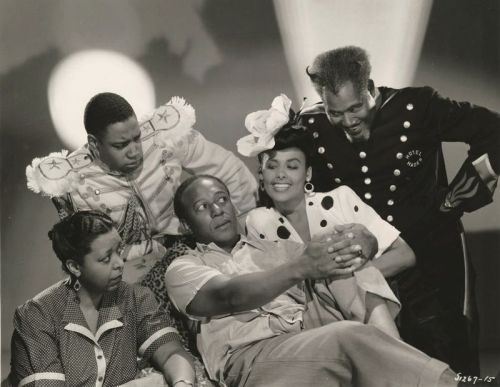



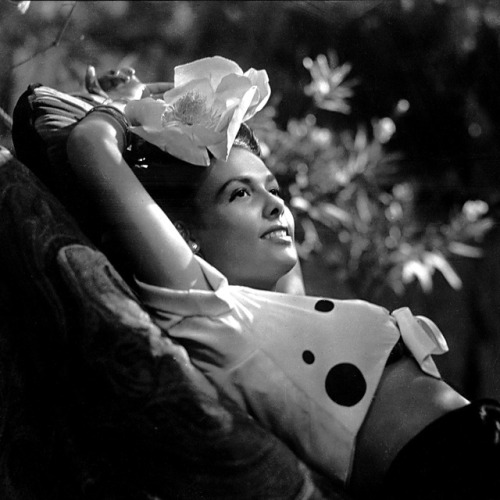
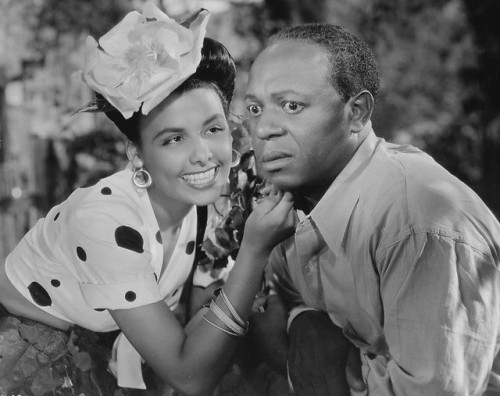

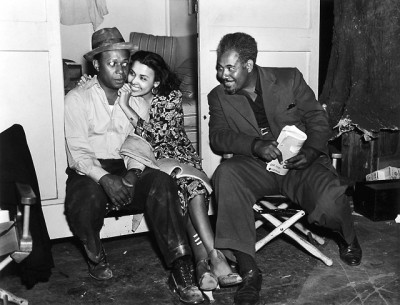
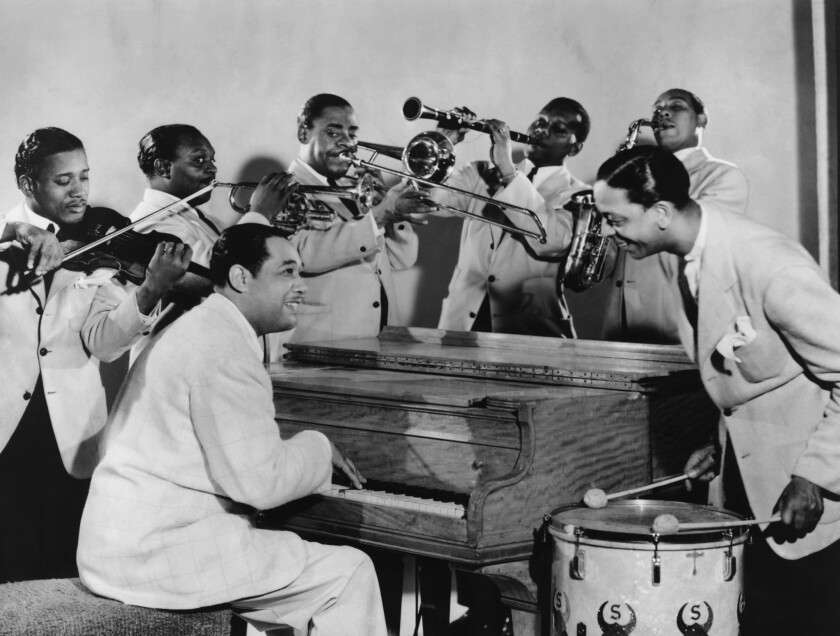


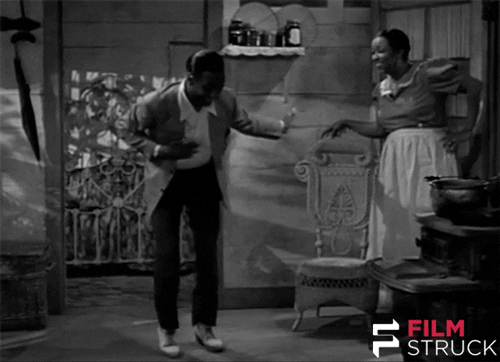

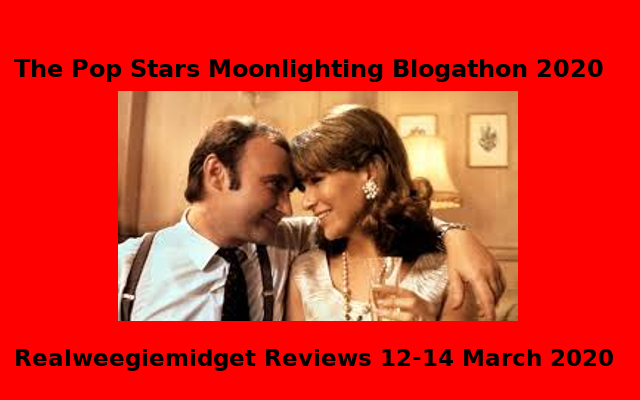
3 comments:
Cabin in the Sky is a great favourite of mine for the after-life fantasy aspect, the preserving of a Broadway hit, and the mighty talent involved.
Although it usually irks me when Hollywood denies a Broadway star (Dooley Wilson) the chance to put their role on screen, the studio was not wrong in that Eddie Anderson would be a greater draw. Eddie was certainly not a noted vocalist, but he certainly had a recognizable voice.
Thanks for joining Le - love this post. I remember reading about it for that online Musicals course so great to read more on it.. take care and hope all good where you are.
I have to say my fave person in this film is Ethel Walters, but Lena Horne is fabulous and practically luminescent. Both women should have become bigger stars, yes? Happily, though, we have their film performances to enjoy time and again.
Post a Comment